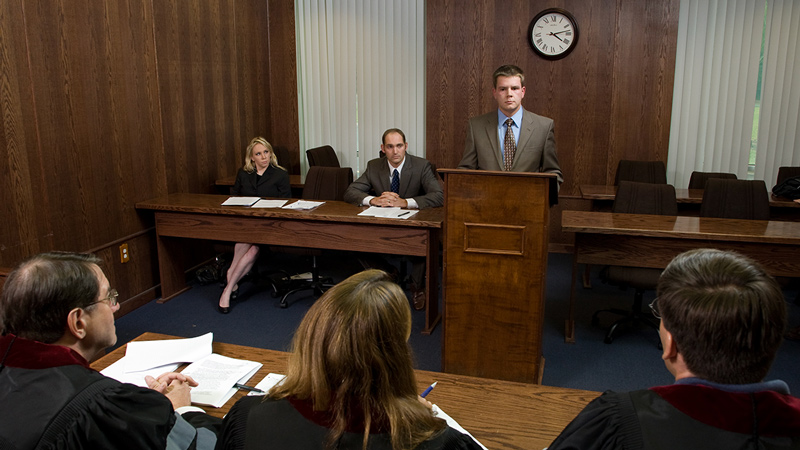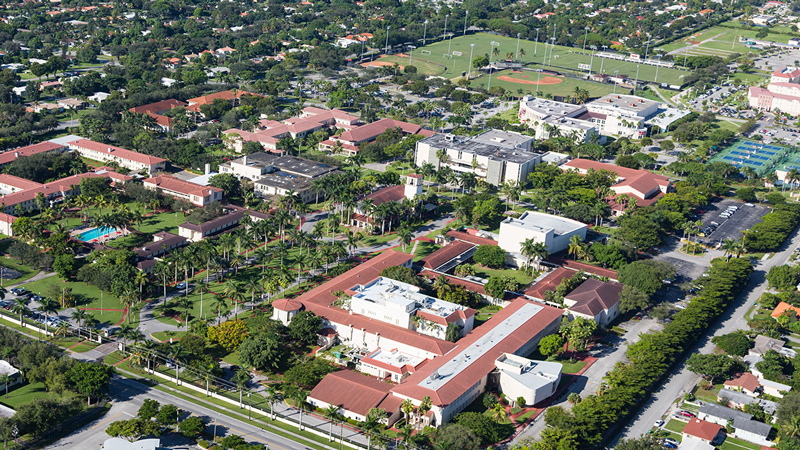PURPOSE AND SCOPE
The computing facilities at Barry University are provided for the use of registered students, faculty and staff. All computer users are responsible for using the facilities in an effective, efficient, ethical and lawful manner. The university views the use of computer facilities as a privilege, not a right, and seeks to protect legitimate computer users by imposing sanctions on those who abuse the privilege.
The following conditions apply to all users of the Department of Information Technology facilities and services. Violations of any of the conditions are considered unethical and possibly unlawful. An individual's computer use privileges may be suspended immediately upon the discovery of a possible violation of these policies. Such suspected violations will be confidentially reported to the appropriate faculty, supervisors, department chairmen, Department of Information Technology staff or Vice Presidents.
POLICIES
COMPUTER USERS AGREE TO USE FACILITIES AND ACCOUNTS FOR UNIVERSITY RELATED ACTIVITIES ONLY. Accounts are considered the property of Barry University. All access to networked computer systems must be approved by the Department of Information Technology. Attempts to use accounts without authorization or to use accounts for other than their intended purposes are all violations of this rule. Loopholes in computer security systems or knowledge of a special password should not be used to damage computer systems, obtain extra resources, take resources from another user, gain access to systems or use systems for which proper authorization has not been given. Any attempt to overcome the security systems of any Barry University machine is strictly prohibited. The Department of Information Technology reserves the right to disable and/or terminate an account if any misuse is determined. Computer equipment and accounts are to be used only for the purpose for which they are assigned and are not to be used for commercial purposes or non-university related activities. Game playing is not allowed on the system during the academic semester if the machine is otherwise needed for legitimate academic use.
Programs and files are considered confidential unless they have explicitly been made available to other individuals. Systems personnel may access files when necessary for the maintenance of central computer systems. When performing maintenance, every effort is made to insure the privacy of a user's files. However, if violations are discovered, they will be reported immediately to the appropriate Vice President.
Electronic Communications facilities, such as electronic mail and other messaging systems are for university related activities only. Fraudulent, harassing or obscene messages and/or materials are not to be sent or stored.
COMPUTER USERS AGREE TO RESPECT THE INTEGRITY OF THE SYSTEM. No one should deliberately attempt to degrade the performance of a computer system or to deprive authorized personnel of resources or access to any university computer system.
Users shall not intentionally develop or use programs for the purpose of harassing other users of the facility, breaking into the system, or damaging system components.
COMPUTER USERS AGREE TO THE PROPRIETARY RIGHTS OF SOFTWARE. Computer software protected by copyright is not to be copied from, into, or by using campus computing facilities, except as permitted by law or by the contract with the owner of the copyright. In addition all Barry University computer users are required to abide by the guidelines of the university's Computer Software Policy.
Other organizations operating computing and network facilities that are reachable via the Barry University Network (BarryNet) may have their own policies governing the use of those resources. When accessing remote resources through Barry University facilities, users are responsible for obeying both the policies set forth in this document and the policies of the other organizations.
Users must first consult with the Department of Information Technology prior to engaging in the following activities: establishing electronic data interchange (EDI) arrangements, electronic commerce activities, installing online database services, etc.
Files downloaded from the internet must be scanned with virus detection software before installation or execution. All appropriate precautions must be taken to detect viruses and to prevent the infection of university computers.
EXAMPLES OF MISUSE
Examples of misuse include, but are not limited to, the activities in the following list.
Using the Campus Network to gain unauthorized access to any computer system.
Knowingly or carelessly performing an act which will interfere with the normal operation of computers, terminals, peripherals, or networks.
Knowingly or carelessly running or installing on any computer system or network, or giving to another user, a program intended to damage or to place excessive load on a computer system or network. This includes, but is not limited to, programs known as computer viruses, Trojan Horses and worms as well as programs like Napster that utilize a disproportionate amount of available network bandwidth.
Attempting to circumvent data protection schemes or uncover security loopholes. This includes creating and/or running programs that are designed to identify security loopholes and/or intentionally decrypt secure data. This also includes programs contained within an account, or under the ownership of an account that are designed or associated with security cracking.
Deliberately wasting/overloading computing resources. This includes, but is not limited to, printing multiple copies of a document or printing out large documents that may be available on-line that could significantly impact other users printing resources.
Sending unsolicited electronic mail messages to more than 15 individual recipients. If legitimate messages need to be sent to large groups of people such as classes, clubs or other administrative groups then distribution lists must be properly requested and/or utilized.
Moving large files across networks during peak usage periods or prime hours such that it degrades resource performance. Prime hours will be considered to be Monday through Friday from 8am to 5pm.
Storing large files on the systems which could compromise system integrity or preclude other users right of access to disk storage. Systems Administration staff may remove or compress disk files that are consuming large amounts of disk space, with or without prior notification.
Masking the identity of an account or machine. This includes, but is not limited to, sending mail anonymously.
Using your account for any activity that is commercial in nature, i.e. paid for by non-University funds. Commercial activities include, but are not limited to, consulting, typing services, and developing software for sale.
Posting on electronic bulletin boards materials that violate existing laws or the University's codes of conduct.
Displaying sexually explicit, graphically disturbing, or sexually harassing images or text in a public computer facility, or location that can potentially be in view of other individuals.
Attempting to monitor or tamper with another user's electronic communications, or reading, copying, changing, or deleting another user's files or software without the explicit agreement of the owner. Files owned by individual users are to be considered private property, whether or not they are accessible by other users.
Installing unauthorized devices to the campus network without prior approval. This includes the installation of network server computers (machines configured to provide file/print sharing services, DHCP services, DNS services, WINS services, web page services, etc.) network appliances, network workstations, miscellaneous internet protocol devices, etc.
Activities will not be considered misuse when authorized in writing by appropriate University officials for academic or administrative purposes.
VIOLATIONS
Violations of this policy will be dealt with in the same manner as violations of other university policies and may result in disciplinary review. In such a review, the full range of disciplinary sanctions is available including the loss of computer use privileges, dismissal from the University, and legal action. Violations of some of the policies may constitute a criminal offense. Barry University employees are responsible for understanding and observing the provisions of this policy.
REVIEW CYCLE
This policy will be reviewed annually. The review process will be managed by the Associate Vice President for Information Technology.
Policy updated April 4, 2012













